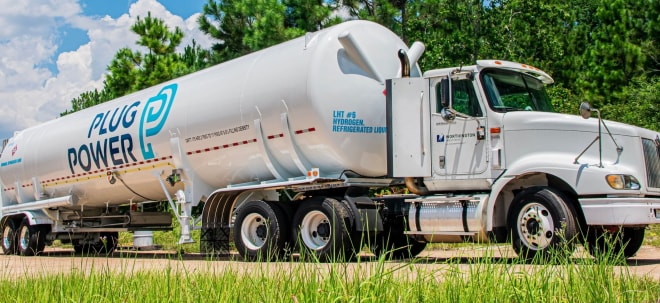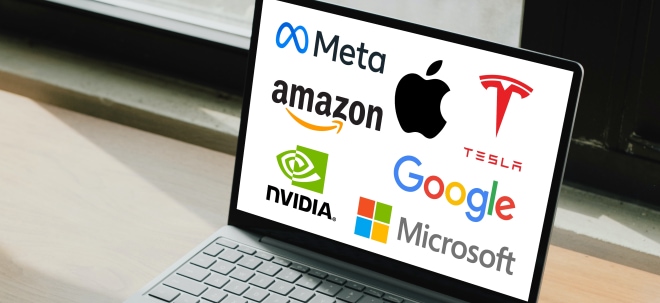EQS-News: SeaStar's QUELIMMUNE Therapy For Pediatric AKI Adopted By Hospitals In Multiple States, Adult Treatment In Pipeline
Werte in diesem Artikel
|
EQS-News: Benzinga
/ Key word(s): Healthcare
Werbung Werbung By Meg Flippin Benzinga DETROIT, MICHIGAN - May 12, 2025 (NEWMEDIAWIRE) - Pediatric acute kidney injury (AKI) impacts approximately 4,000 children in the U.S. each year, and the prognosis for these patients is grim. The mortality rate is 50%, they spend twice as long in the ICU, and more than 30% will develop chronic kidney disease following AKI - noted SeaStar Medical in its recent investor presentation. Yet finding effective treatments doesn’t typically receive the same attention as adult AKI or other illnesses caused by infections, injuries and surgeries.  SeaStar Medical (NASDAQ: ICU), a commercial-stage healthcare company focused on transforming treatments for critically ill patients facing organ failure and potential loss of life, is aiming to change that with QUELIMMUNE, the company’s newly approved product to treat pediatric patients with AKI due to sepsis or a septic condition. The therapeutic device is connected in-line to an existing hemodialysis system’s continuous renal replacement therapy (CRRT) circuit in the ICU. Werbung Werbung The QUELIMMUNE therapy was granted approval under a Humanitarian Device Exemption (HDE) by the Food and Drug Administration (FDA) in February 2024, with clinical data establishing safety and probable benefit for this use. SeaStar said pooled analysis from two non-controlled studies – SCD-PED-01 (funded by the FDA Office of Orphan Products Development) and SCD-PED-02 – showed that pediatric patients treated with the QUELIMMUNE pediatric therapy had no device-related serious adverse events or device-related infections, a 77% survival rate and no dialysis dependency after 60 days. Clinical Benefits Beyond The Standard Of Care The FDA grants a Humanitarian Device Exemption (HDE) to medical devices for the treatment or diagnosis of rare diseases or conditions that impact fewer than 8,000 patients in the U.S. annually. What makes the QUELIMMUNE therapy so promising, reports SeaStar, is that customers are already reporting life-saving results where patients who had little hope for survival have returned to a normal life. “In addition to compelling clinical benefits, QUELIMMUNE’s ability to reduce healthcare costs is another reason for hospitals to adopt our therapeutic device,” said Eric Schlorff, SeaStar Medical CEO. “Our data show that AKI patients treated with the SCD had no dialysis dependency 60 days after treatment. Because the cost for a single patient on dialysis is about $100,000 per year, eliminating this cost represents substantial and ongoing savings to the healthcare system. QUELIMMUNE therapy also has the potential to reduce the average length of hospital stay and to lower the rate of readmissions and post-acute emergency visits.” Werbung Werbung AKI is characterized by a sudden and temporary loss of kidney function and can be caused by several conditions, including sepsis, severe trauma, surgery and COVID-19. AKI can perpetuate destructive hyperinflammation, which is the overproduction or overactivity of inflammatory effector cells and other molecules that can be toxic. Damage resulting from hyperinflammation in AKI can progress to other organs, such as the heart or liver, and potentially lead to multi-organ dysfunction or even failure that could result in worse outcomes, including increased risk of death. Even after resolution, patients may face complications, including chronic kidney disease or end-stage renal disease requiring dialysis. Hyperinflammation may also contribute to added healthcare costs, such as prolonged ICU stays and increased reliance on dialysis and mechanical ventilation. According to SeaStar, historical data shows that on average, U.S. hospitals incur costs of approximately $457,000 per pediatric AKI hospitalization that involves CRRT; a majority of whom had sepsis. Hospitals On Board Since QUELIMMUNE received HDE status from the FDA, SeaStar has been busy signing up hospitals as customers. The company notes that the process for hospitals to adopt a new product can be lengthy. In the case of the QUELIMMUNE therapy, a Post-Approval Registry requirement by the FDA adds an additional step to the process and that typically takes more time. Despite this additional hurdle, SeaStar says it currently has five customers using the QUELIMMUNE therapy and a robust pipeline of hospitals in the process of adoption. “We are actively working to secure additional hospital clearances by gaining institutional review board (IRB) approvals for using the QUELIMMUNE therapy within their facilities,” said Tim Varacek, SeaStar Medical senior vice president, commercial and business operations, when announcing the most recent customer win. “Currently, we are engaged with more than a dozen new medical centers, with seven of these hospitals advancing into the IRB approval process. Additionally, I’m pleased to report that several of our current customers have reordered QUELIMMUNE for their institutions since the beginning of this year.” Adults Up Next: A Potentially Larger Market While SeaStar is making inroads with pediatric AKI, it isn’t stopping there. The company has now set its sights on treating adult patients with AKI, which it says is a bigger market to the tune of $4.5 billion. The company is currently engaged in a trial evaluating the safety and efficacy of its second proprietary SCD therapy in 200 adults with AKI in the ICU receiving continuous renal replacement therapy (CRRT). The trial is studying the 90-day mortality or dialysis dependency of patients treated with SCD in addition to CRRT as the standard of care, compared with the control group receiving only the CRRT standard of care. Secondary endpoints include mortality at 28 days, ICU-free days in the first 28 days, major adverse kidney events at day 90 and dialysis dependency at one year. The study will also include subgroup analyses to explore the effectiveness of SCD therapy in AKI patients with sepsis and acute respiratory distress syndrome. The company plans to conduct an interim analysis once it has reached the 90-day primary endpoint in the first 100 enrolled patients. The pooled data will be reviewed by an independent Data Safety Monitoring Review Board, or DSMB, to gauge patient safety, the validity of the study and whether there is scientific merit to continuing the trial. SeaStar says it anticipates this will occur later this year and, if there are no changes to the trial, the potential approval and launch of the treatment could occur sometime in 2026. Pediatric and adult AKI is a problem for many Americans, one that doesn’t often get the attention it deserves. SeaStar is aiming to change that. With its pediatric product already in hospitals around the country, a trial underway for its adult-focused therapy and Breakthrough Medical Device Designation from the FDA for multiple other conditions, SeaStar is playing a progressive role in helping treat costly medical conditions that can lead to death – and is a company to watch for future developments that could impact the lives of many. Featured image by Robina Weermeijer on Unsplash This post contains sponsored content. This content is for informational purposes only and is not intended to be investing advice. This content was originally published on Benzinga. Read further disclosures here. View the original release on www.newmediawire.com News Source: Benzinga
12.05.2025 CET/CEST Dissemination of a Corporate News, transmitted by EQS News - a service of EQS Group. |
| Language: | English |
| Company: | Benzinga |
| United States | |
| ISIN: | US81256L2034 |
| EQS News ID: | 2135556 |
| End of News | EQS News Service |
|
|
2135556 12.05.2025 CET/CEST
Übrigens: US-Aktien sind bei finanzen.net ZERO sogar bis 23 Uhr handelbar (ohne Ordergebühren, zzgl. Spreads). Jetzt kostenlos Depot eröffnen und als Geschenk eine Gratisaktie erhalten.
Ausgewählte Hebelprodukte auf SeaStar Medical
Mit Knock-outs können spekulative Anleger überproportional an Kursbewegungen partizipieren. Wählen Sie einfach den gewünschten Hebel und wir zeigen Ihnen passende Open-End Produkte auf SeaStar Medical
Der Hebel muss zwischen 2 und 20 liegen
| Name | Hebel | KO | Emittent |
|---|
| Name | Hebel | KO | Emittent |
|---|
Nachrichten zu SeaStar Medical Holding Corp Registered Shs
Analysen zu SeaStar Medical Holding Corp Registered Shs
Keine Analysen gefunden.

